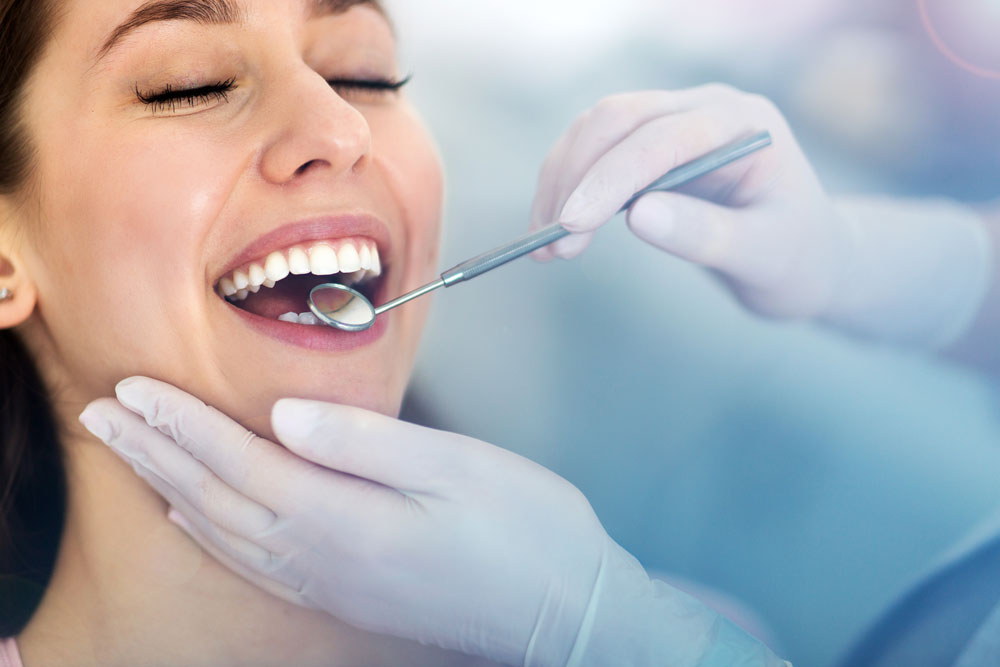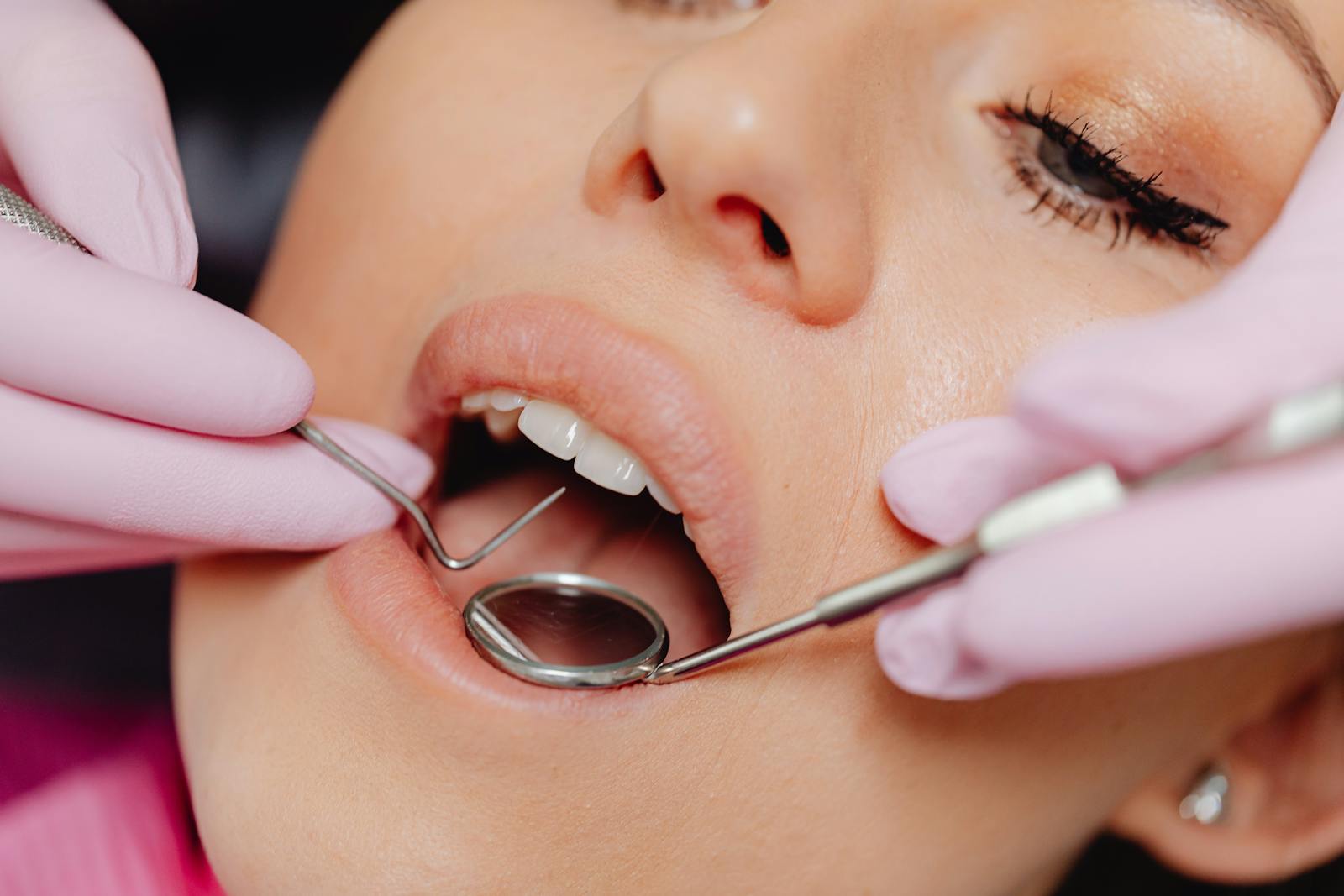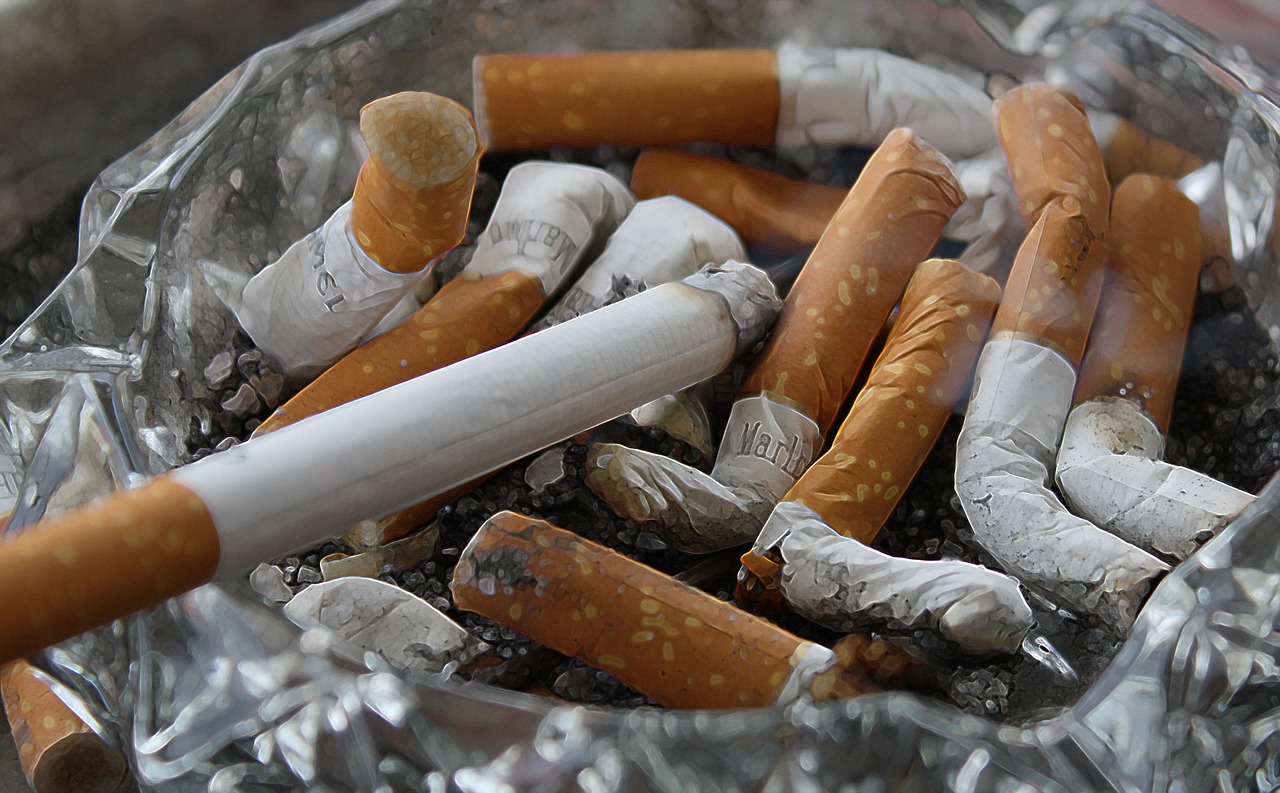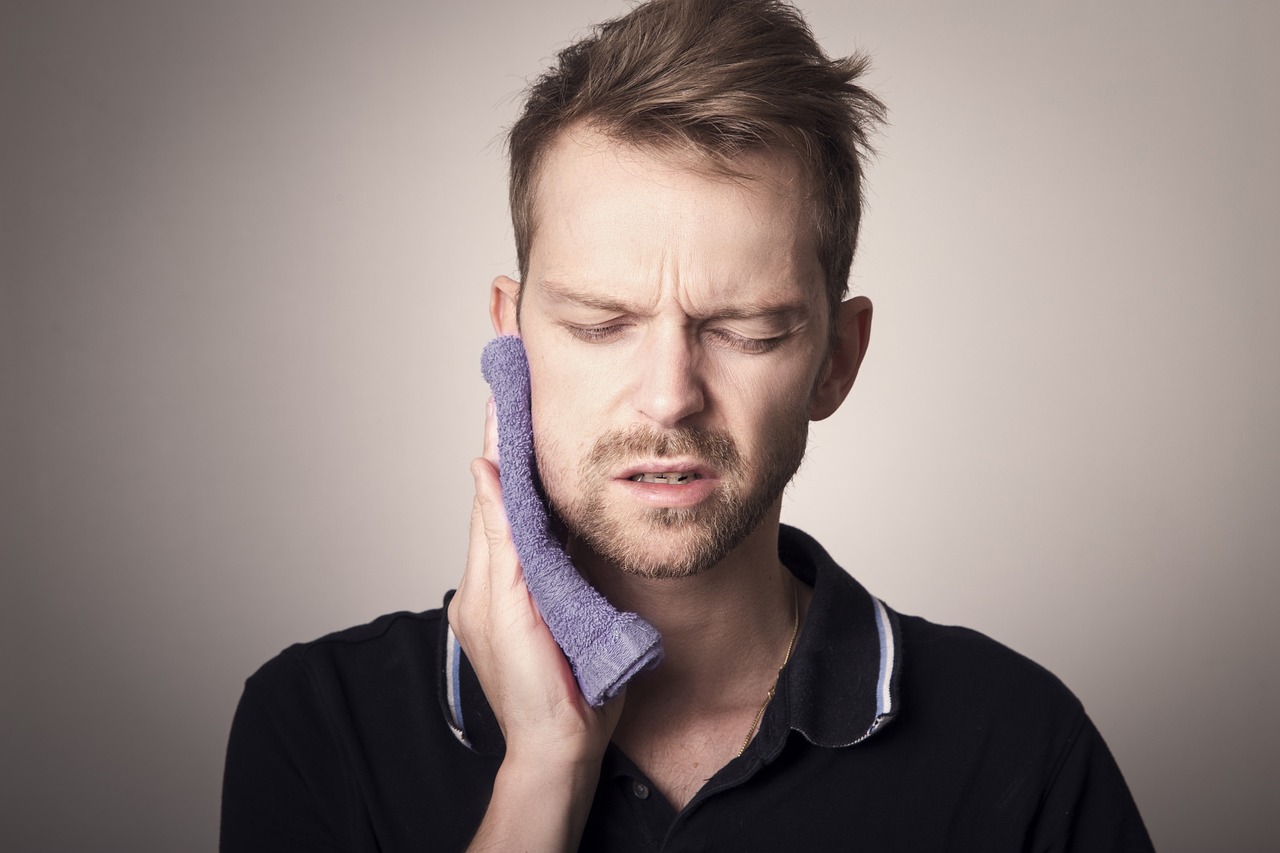How Often Should You Get Your Teeth Cleaned?
How Often Should You Get Your Teeth Cleaned?
Author
superadmin
Share

Maintaining good dental health goes beyond just having a bright smile—it helps prevent more serious issues like tooth decay, gum disease, and other health complications linked to poor oral hygiene. A key part of keeping your teeth and gums healthy is routine dental care, including regular brushing, flossing, and, importantly, professional dental cleanings by a dentist or hygienist.
Dental cleanings not only remove the plaque and tartar that can lead to cavities and gum problems, but they also allow your dentist to check for early signs of other potential issues. Regular cleanings are an essential preventative measure, helping you avoid more costly and painful treatments.
Understanding the right schedule for dental cleanings will keep your smile healthy and ensure that you’re taking the best possible care of your teeth and gums. Whether you’re wondering if the twice-a-year rule applies to you or if certain conditions mean you need cleanings more frequently, this guide will provide a clear answer.
What is a Dental Cleaning?

A dental cleaning, also known as a prophylaxis, is a professional procedure to remove plaque, tartar, and stains from your teeth to promote oral health. The cleaning typically starts with scaling, where a dental hygienist uses specialized tools to remove hardened tartar (also called calculus) from the surface of your teeth and along the gum line. After scaling, the hygienist will polish your teeth using a gritty paste to smooth the surfaces and remove any lingering stains, leaving your teeth cleaner and shinier.
The dental hygienist plays an important role in this process, performing most of the cleaning and assessing your oral health for any signs of gum disease, cavities, or other issues. They may also offer advice on improving your home care routine.
Regular Cleaning vs. Deep Cleaning
A regular cleaning is preventative, performed every six months for people with healthy gums. In contrast, a deep cleaning, known as scaling and root planing, is necessary when there’s significant gum disease. It involves cleaning below the gum line to remove bacteria and tartar from the tooth roots and promote gum healing. Deep cleanings may be done in multiple visits, depending on the severity of the condition.
General Recommendation for Dental Cleanings
The general recommendation for dental cleanings is to visit your dentist every six months. This twice-a-year schedule is widely considered the baseline for maintaining optimal oral health. It’s the standard advice for most people, supported by the American Dental Association (ADA), as it allows for the removal of plaque and tartar that build up over time, even with diligent brushing and flossing.
Why twice a year?
The answer is plaque, the sticky film of bacteria on your teeth, which can harden into tartar if not regularly removed. Once it turns into tartar, brushing alone won’t eliminate it—only a dental professional can do that. Allowing tartar to accumulate increases the risk of cavities and gum disease. Regular cleanings prevent these problems from escalating by keeping your teeth free of harmful buildup. During these appointments, your dentist or dental hygienist can spot early signs of oral health issues like cavities, gum disease, and even oral cancer. Early detection often leads to easier, less costly treatments.
Two yearly cleanings are sufficient for most individuals to maintain healthy teeth and gums. However, people with certain conditions, such as gum disease, a history of frequent cavities, or underlying health issues, may need more frequent visits. At Phoenician Dentistry, we recommend this six-month schedule to keep your teeth clean and catch any potential issues early, saving you from more invasive or expensive procedures later on.
Regular dental cleanings have various benefits: they help prevent bad breath, maintain oral hygiene, and support a healthy smile. Adhering to the twice-yearly schedule ensures that your teeth and gums remain in good condition and reduces the risk of more severe dental problems. In short, sticking to regular cleanings is key to long-term oral health.
Factors That Affect How Often You Should Get Your Teeth Cleaned
Several factors can influence how often you should get your teeth cleaned, with some individuals requiring more frequent visits than the standard twice a year. Understanding these factors can help you and your dentist tailor a cleaning schedule that suits your needs.
Oral Health Condition
People with periodontal disease or gum issues often need cleanings every 3 to 4 months. Gum disease can lead to more rapid plaque and tartar buildup, increasing the risk of tooth loss if left untreated. Frequent cleanings help manage and control this condition by reducing bacteria and inflammation in the gums.

Smoking
Smoking significantly raises the risk of gum disease, staining, and bad breath. Smokers may need dental cleanings more often, as tobacco can lead to more aggressive plaque formation and hinder gum healing. Smokers can reduce the negative impact on their oral health by increasing the frequency of cleanings.
Diet
If your diet is high in sugar or acidic foods, you’re more prone to plaque buildup, which can lead to cavities and enamel erosion. Those who frequently consume sugary drinks, snacks, or acidic foods like citrus and soda may need more frequent dental cleanings to prevent tooth decay.
Health Conditions
Certain medical conditions such as diabetes, pregnancy, and autoimmune disorders can negatively impact oral health, increasing plaque buildup and gum sensitivity. More frequent cleanings can help mitigate these effects and ensure healthier teeth and gums.
Genetics
Some individuals naturally produce more plaque or have weaker enamel, regardless of how well they maintain their oral hygiene. Genetics can make some people more susceptible to cavities or gum disease, necessitating more regular cleanings.
Dental Habits
Lastly, your at-home oral hygiene practices after how many dental cleanings you may need. If you’re diligent about brushing, flossing, and using mouthwash, you may not need cleanings as often. However, poor habits can accelerate tartar buildup, increasing the need for more frequent professional cleanings.
Signs You May Need More Frequent Cleanings
Several warning signs may indicate you need more frequent dental cleanings. If you experience any of these symptoms, consult with Phoenician Dentistry to determine if you should adjust your cleaning schedule.
Persistent Bad Breath
Chronic bad breath, also known as halitosis, can indicate underlying oral health issues such as excessive plaque buildup, gum disease, or an infection. Regular cleanings can help eliminate the bacteria that cause bad breath and keep your mouth fresh.
Bleeding Gums
Gums that bleed during brushing or flossing are often an early indicator of gingivitis or more advanced gum disease. Frequent cleanings can help control gum inflammation and prevent the condition from worsening into periodontitis, which can lead to tooth loss.
Noticeable Plaque or Tartar Buildup
If you can see or feel plaque or tartar on your teeth, it’s a sign that your at-home oral care routine may not be enough. Tartar, in particular, can only be removed by a dental professional, so more frequent cleanings can keep buildup under control and prevent cavities or gum disease.
Increased Sensitivity or Tooth Pain

Experiencing sensitivity to hot, cold, or sweet foods may indicate tooth decay or gum recession. Cleanings can help remove plaque and tartar that contribute to these problems, and your dentist can address the underlying cause of the sensitivity.
Receding Gums or Loose Teeth
Gum recession and loose teeth are often signs of advanced gum disease. In these cases, more frequent cleanings may be necessary to slow the progression of gum disease and maintain the health of your teeth and gums.
History of Cavities or Gum Disease
If you’ve had cavities or gum disease in the past, you’re more likely to develop these issues again. More frequent cleanings can help prevent recurrence by keeping your teeth and gums in better condition and allowing for early detection of any new problems.
If you notice any of these signs, it’s important to speak with your dentist about increasing the frequency of your cleanings to protect your oral health.
The Consequences of Skipping Dental Cleanings
Neglecting regular dental cleanings can lead to a series of oral health issues, starting with plaque buildup. Plaque, a sticky film of bacteria that forms on teeth, can harden into tartar if not removed in time. Unlike plaque, tartar is a tough substance that can only be removed by a professional dentist or hygienist during a dental cleaning. If left untreated, tartar can cause more serious problems.
One common consequence of tartar buildup is gum disease. In its early stages, known as gingivitis, the gums become red and swollen and may bleed easily. Without intervention, gingivitis can progress into periodontitis, a more severe form of gum disease that can damage the soft tissue and bone supporting your teeth, ultimately resulting in tooth loss.
In addition to gum disease, tooth decay and cavities are a direct result of plaque and tartar buildup. The bacteria in plaque produce acids that erode tooth enamel, leading to cavities and, if untreated, more severe infections such as abscesses.
Beyond oral health, there’s growing evidence that gum disease can impact overall health. Studies suggest a link between advanced gum disease and serious conditions like heart disease, stroke, and diabetes. Inflammation in the gums may contribute to inflammation in other body parts, affecting your cardiovascular system and overall health.
In severe cases, the long-term neglect of oral health can result in tooth loss and significant health risks. Regular dental cleanings are essential for maintaining a healthy mouth and protecting your overall well-being.
How to Maintain Oral Hygiene Between Cleanings
Maintaining good oral hygiene between dental cleanings is essential for preventing plaque buildup and keeping your teeth and gums healthy. Here are some essential daily habits that can help:
- Brushing Twice a Day with Fluoride Toothpaste: Brushing your teeth at least twice daily is the cornerstone of good oral care. Using fluoride toothpaste helps strengthen tooth enamel and protect against cavities. Make sure to brush for two minutes each time, reaching all surfaces of your teeth.
- Flossing Daily: Flossing is as important as brushing because it removes plaque and food particles from areas between your teeth that your toothbrush can’t reach. Daily flossing helps prevent cavities and gum disease by keeping the spaces between your teeth clean.
- Using Mouthwash (Optional but Recommended for Some): While not essential for everyone, mouthwash can be a helpful addition to your oral care routine. It helps rinse away debris, reduce bacteria, and freshen your breath. A dentist may recommend an antiseptic mouthwash for people with gum disease or other conditions.
- Limiting Sugar and Acidic Foods: Sugar and acidic foods contribute to tooth decay by feeding bacteria that produce acids, which erode your enamel. Limiting sugary snacks, sodas, and acidic foods like citrus can help protect your teeth and reduce the need for more frequent cleanings.
- Drinking Water Regularly: Water helps rinse food particles and hydrate your mouth. It’s especially helpful after meals when brushing isn’t immediately possible. Drinking water regularly can also help wash away sugars and acids contributing to decay.
- Avoiding Tobacco Products: Smoking and using tobacco products increases the risk of gum disease, tooth staining, and bad breath. Avoiding tobacco is one of the best ways to protect oral health and overall well-being.
- Chewing Sugar-Free Gum After Meals: Chewing sugar-free gum stimulates saliva production, which helps neutralize acids, rinse away food particles, and protect your teeth between meals.
Dental Cleanings for Children vs. Adults
Regarding dental cleanings, the frequency and approach for children can differ from adults due to their developing teeth and gums. Regular dental visits for children are essential to establish strong oral health habits early on and prevent potential issues.
Differences in Frequency and Approach for Children
Children typically need dental cleanings every six months, just like adults. However, their visits may also include additional preventive measures such as fluoride treatments or dental sealants to protect their teeth. For children with a higher risk of cavities, such as those who consume sugary foods or beverages frequently or have a history of dental issues, more frequent visits may be recommended.
Importance of Early Oral Health Education
Teaching children about oral hygiene from a young age is crucial for maintaining long-term dental health. Early education helps kids understand the importance of brushing, flossing, and visiting the dentist regularly. Encouraging good habits early on reduces the chances of cavities, gum disease, and other oral health issues later in life. Parents play an important role by reinforcing these habits at home, such as brushing twice daily and limiting sugary snacks.
When Children Should Start Getting Cleanings
At Phoenician Dentistry, we recommend that children start seeing a dentist when their first tooth appears or no later than their first birthday. Early dental visits allow dentists to monitor the growth and development of a child’s teeth and address any potential problems early. Regular cleanings can begin once a child has multiple teeth, typically around the age of 2-3, to keep their mouth healthy as they grow and develop.
How Insurance Impacts Dental Cleanings
For many individuals, dental insurance plays a significant role in determining how often they get their teeth cleaned. Understanding the coverage and potential out-of-pocket costs can help you make informed decisions about your dental care.
Coverage for Bi-Annual Cleanings in Most Insurance Plans
Most dental insurance plans cover bi-annual cleanings as part of their standard preventative care offerings. This means that twice a year, you can receive a professional cleaning at little to no cost, depending on your specific plan. This coverage aims to encourage regular dental visits, helping prevent more serious issues like cavities or gum disease, which can be more expensive to treat.
Out-of-Pocket Costs for Additional Cleanings
While insurance typically covers two cleanings a year, additional cleanings may require out-of-pocket expenses. If you need more frequent cleanings due to conditions like gum disease, you may have to pay a portion or the full cost, depending on your insurance plan. These costs can vary, so it’s a good idea to check with your provider about your specific coverage if more frequent visits are necessary.
Preventative Care vs. Treatment of Existing Issues
Regular cleanings are part of preventative care, designed to keep your teeth and gums healthy by addressing plaque and tartar before they lead to larger problems. Insurance plans often fully cover these preventative services because they help avoid more costly treatments. On the other hand, if you neglect cleanings and develop issues like cavities or gum disease, the necessary treatments (such as fillings or deep cleanings) can be more expensive. They may not be fully covered by insurance. Addressing problems before they start is both a cost-effective and health-conscious approach.
How Often Should You Go to the Dentist?
The general recommendation for dental cleanings is twice a year, but this can vary based on individual factors such as oral health, lifestyle habits, and underlying medical conditions. People with healthy teeth and gums may find that bi-annual cleanings are sufficient, while those with gum disease, a history of cavities, or habits like smoking may need more frequent visits to maintain optimal oral health. Factors like diet, genetics, and overall dental hygiene practices also play a role in determining how often you should schedule cleanings.
Ultimately, maintaining regular dental cleanings is key to preserving both your oral health and overall well-being. Professional cleanings remove plaque and tartar that daily brushing and flossing might miss, preventing tooth decay, gum disease, and even potential impacts on your overall health. By staying proactive with your dental care, you can avoid more serious issues and ensure a healthy, confident smile for years.
If it’s been a while since your last visit, now is the perfect time to schedule an appointment with Phoenician Dentistry. Don’t wait until you’re dealing with discomfort or expensive treatments—schedule your cleaning today to maintain your oral health and overall well-being.



